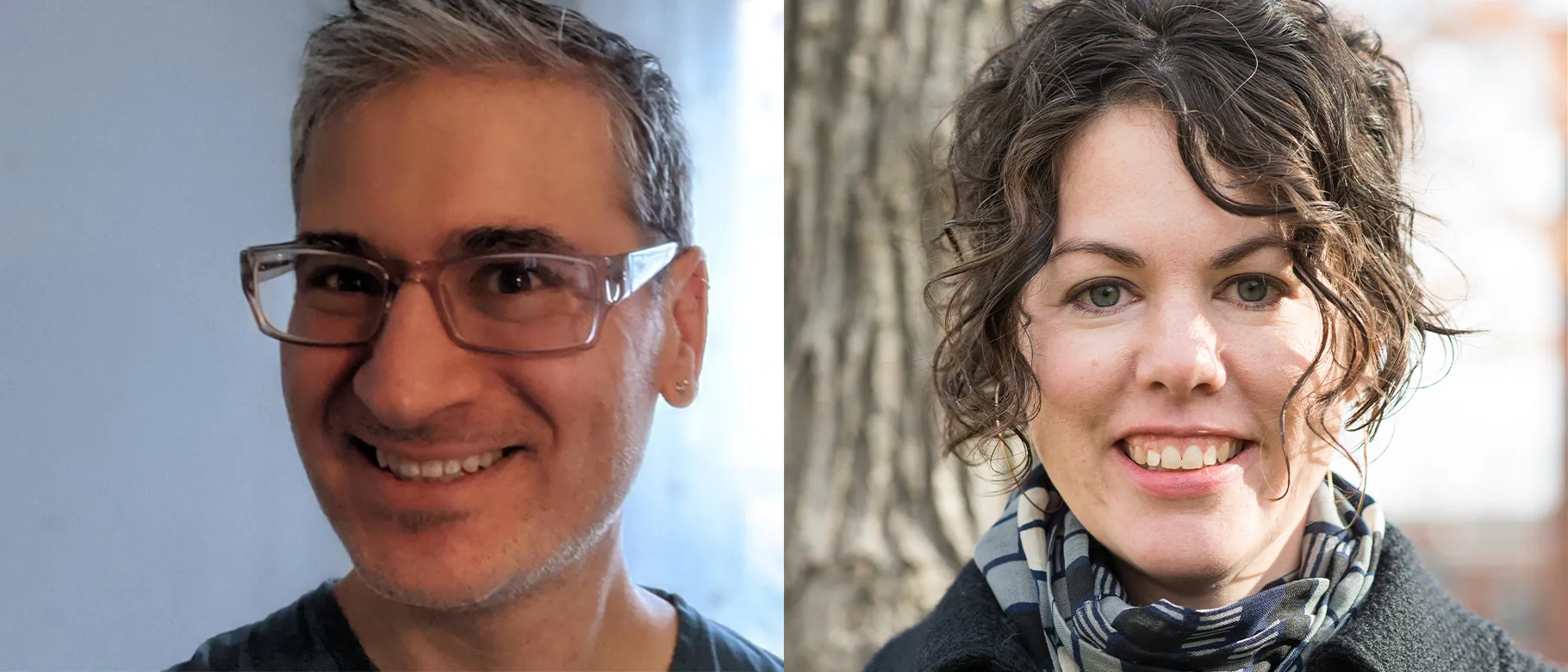College of Arts and Sciences announces highest annual faculty honors

The University of New England College of Arts and Sciences (CAS) has announced its highest annual faculty honors: the 2022-2023 Ludcke Chair of Arts and Sciences and the Distinguished Academic Service Award.
Craig Tennenhouse, Ph.D., professor in the School of Mathematical and Physical Sciences, has been named Ludcke Chair. Alicia Peters, Ph.D., associate professor of anthropology and affiliated faculty in the Women’s and Gender Studies (WGST) program, is the recipient of the Distinguished Academic Service Award — also known as the “Kenneally Cup,” named after Raymond Kenneally, who first received the award in 1986.
Funded by a generous bequest from the estate of Eleanor Ludcke (Westbrook College Class of 1926), the Ludcke Chair is presented annually to a tenured CAS faculty member in recognition of outstanding academic accomplishments. The chair holder must have attained the ideal of the “teacher/scholar,” a dedicated educator and productive researcher who has given time generously to the University of New England over a significant period.
Tennenhouse is a researcher whose studies on graph theory and game theory have led to significant contributions to mathematics. He has been actively and consistently engaged in the professional mathematics community through conference attendance and presentations, which include a range of national and international venues, and through several invited talks.
Additionally, Tennenhouse frequently publishes his research in peer-reviewed journals — including in the areas of pure and applied mathematics, mathematics education, and mathematical connections to the sciences — with eight articles published or submitted in five years. He has co-authored the textbook “Playing Games with Discrete Math,” which blends his research area with a more traditional area in mathematics.
Guided by his teaching philosophy, which connects his scholarly program to the teaching mission of CAS, Tennenhouse’s teaching routinely blends research elements through coursework and research projects. He has directed at least a dozen one-on-one research projects with undergraduate students, and he is known within CAS for his efforts to interact with colleagues in other disciplines, notably in the non-sciences, to develop ideas for interdisciplinary student learning experiences.
“I am touched and humbled to be selected by my peers as this year's Ludcke Chair,” said Tennenhouse. “I have always worked hard to connect my scholarship with my work in the classroom, and to have this work recognized is a great privilege. It's an honor to be in the company of so many outstanding teacher-scholars.”
Peters holds a doctor of sociomedical sciences from Columbia University’s joint program in public health and anthropology. Recipient of the 36th Kenneally Cup, she is a leader in student advocacy, curricular development, and social justice.
Known for contributing enthusiasm and untiring energy to her endeavors, Peters showcases tireless commitment and dedication to diversity, equity, and inclusion (DEI) as chair of the College of Arts and Sciences Faculty Assembly DEI Committee. In that role, she has curated resources on being an ally; led numerous meetings as chair, facilitator, or consultant; and has advanced several initiatives to keep DEI issues and conversations about race and racism front and center in UNE programs, policies, public resources, and procedures.
Peters brings her scholarly expertise in human trafficking, engaging in a long-standing collaboration with the Preble Street Anti-Trafficking Service Program. She advises and mentors students minoring in health, medicine, and society and anthropology, and she is a multiple-time nominee for the Outstanding Academic Advising Award.
“So many of my colleagues in CAS go above and beyond to support students, participate in shared governance, and work to create just and equitable structures within CAS, and I am humbled to join the community of former Kenneally Cup recipients and so appreciative for the recognition,” Peters remarked. “Moreover, I am grateful for the students, faculty, and professional staff who make social justice a priority at UNE and from whom I have learned so much.”